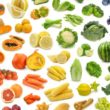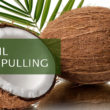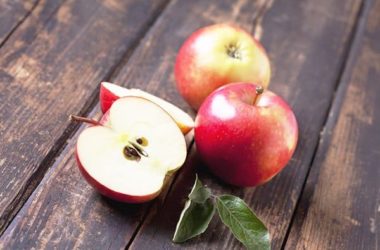Today’s generation of women have made bigger accomplishments compared to their elder counterparts. In fact, a study of 7,280 leaders in 2011 done by Jack Zenger and Joseph Folkman confirms this by asking respondents to rate their bosses in “16 leadership competencies”, and according to the data, women out-scored men by a significant margin.
That being said, it’s clear that women take on bigger responsibilities and live multi-faceted lives. Because of this, women turn to quicker means of maintenance, such as taking food supplements. Manufacturers and the media have created a “supplement-hype” in the market, saying the modern woman has no time to keep a healthy lifestyle, so supplements are A MUST. I found myself succumbing to this during my “call center days,” when I had to stay up late and get very little sleep. In an effort to maintain optimal health despite the draining schedule, I took double the recommended dose of Vitamin E during a time when ads for vitamin E capsules promise looking and feeling young for longer. After 2 weeks, I began suffering from chest pains and tender breasts, which kept me paranoid about heart problems and even breast cancer for some time. Fortunately, my suspicions were false and to my surprise, I OVERDOSED ON VITAMINS. Unfortunately, I’m not alone in this as there have been a lot of buzz about vitamin D deficiency recently. Vitamin D, also known as “the sunshine vitamin,” is plays a major role in bone health. Vitamin D deficiency increases the risk of osteoporosis over time. However, all this hype could blow the need for vitamin D out of proportion since we already get it from daily exposure to sunlight. Clearly something’s amiss as more and more people are turning into little hypochondriacs and are becoming a little too trigger happy on the pill popping.
Overdosing on vitamins does have a name and it is called “Hypervitaminosis.” This is described as an excessive storage level of vitamins in the body that can lead to pernicious side effects and conditions. Hypervitaminosis typically does not happen from merely consuming food, high dietary supplement intake is more likely the culprit. Overdosing on fat-soluble vitamins can also occur from an excessive intake of highly fortified food, but again, these instances rarely happen.
It may seem impossible, but apparently overdosing on vitamins is a real thing. Here are reasons why you should take it easy on popping the health pill:
Cost
Not everyone is required to take vitamins if they can help it. In fact, the purpose of vitamins is to aid people who aren’t able to enjoy daily nutritious meals or for people who need nutritional support to aid in health conditions.
Possible overdosage
There are 2 kinds of vitamins: fat soluble (Vitamins A, D, E, and K) and water-soluble vitamins. In the case of water-soluble vitamins, ingesting excessive amounts will most likely be flushed out of your system through urine, with the exception of the slow release of Vitamin B3 and very high dosage of Vitamin B6. However, toxicity can occur in the excessive consumption of fat-soluble vitamins. One must stop intake, if symptoms such as these occur:
Vitamin A: Ringing ears, blurred vision, hair loss, nausea, and menstrual irregularities
Vitamin D: Deafness, weak bones, hypertension, and high cholesterol
Vitamin E: Muscular weakness, hypertension, tenderness of the breast, and the slow healing of wounds
Vitamin K: Stomach cramps, vomiting, diarrhea, “pins and needles” sensation in the extremities, gastrointestinal bleeding, kidney failure, cardiac arrhythmia and sclerosis
Vitamin B3: skin flushing and itching, very dry skin, skin rashes, eczema exacerbation and acanthosis nigricans, which is the darkening on certain folds of the skin such as the armpits and neck.
Vitamin B6: pain and numbness of the extremities, difficulty in walking
Not FDA regulated
This is most likely the biggest reason why one must take precaution in taking food supplements. Unlike medications, supplements are not regulated. Although, the FDA can take the product off the market if it is found to be harmful, do we really have to wait for that to happen?
It’s not just vitamins
Overdosing on minerals is also possible, like really who would even do that? It does happen and it’s usually because people megadose on their dietary supplements. The Recommended Dietary Allowances (RDAs) and Adequate Intakes (AIs) for minerals and trace elements are already plentiful allowances. One must strictly follow recommended doses of these nutrients as these are enough to prevent deficiency but not to the extreme that they could cause toxicity and symptoms thereof.
Here are 9 minerals and their toxicity symptoms:
Calcium: Constipation, bloating, nausea, and intestinal gas, kidney damage, and the inability to absorb iron and zinc which are important in carrying oxygen throughout the body and to strengthen its immune system.
Phosphorus: diminished body calcium storage
Magnesium: Deadly for those who already have kidney disease, can cause weak muscles, breathing difficulty, irregular heartbeat, and cardiac arrest.
Iron: Stomach pain, nausea, vomiting, metabolic acidosis or the excessive acidity in the body, organ damage with the brain and liver in particular, hypovolemic shock or a decrease in blood plasma, and liver failure.
Zinc: Slow the body’s absorption of copper that may cause anemia, “swayback” or an excessive inward curvature of the back, etc., vomiting, gastric upset, and irritation of the stomach lining.
Iodine: Not only does iodine deficiency cause goiters, but so does overdosing on iodine. Overdosing may also happen to people who eat a lot of dried seaweed for long periods of time.
Selenium: Thick and fragile nails, hair loss, perspiration with a strong odor that resembles garlic, fatigue, abdominal pain, nausea and diarrhea, and nerve damage.
Fluoride: Fluorosis or white or brown patches in the teeth, skeletal fluorosis which causes pain and damage to bones and joints, brittle bones, hip and wrist fractures, fatigue, and muscle weakness. Molybdenum: Diarrhea, growth retardation, infertility, low birth weight and gout.
What ever happened to an apple a day?
What all of this is leading to is a simple lesson in following instructions properly. Simply read up on the proper dosage on the bottle. You can simply do your own research by looking it up in the internet, or better yet, simply ask your advice from your doctor to be sure. Despite all the scary side effects of toxicity listed above, vitamin and mineral overdose may not be a cause of alarm if you’re not already suffering from any health issues. If you observe anything negatively different, simply discontinue the consumption of the dietary supplement in question. Another life-saving tip is to keep an eye on children. Most vitamin overdoses happen to children under six years old. Proper storage of supplements is key in preventing problems like this. Selecting a product with a Child Resistant Cap can provide extra safety in a household with children.
The harsh environment, work, and hectic schedules are only some of the many concerns the modern woman has to deal with. There’s so much pressure to be “fit,” especially on sites like instagram where a completely healthy woman could still feel a little insecure about her health. It’s no surprise why the seemingly “instant” health boost of food supplements is alluring to some women. Wanting “a little extra something” is not that bad, but being a smart consumer can save your life. So before you even start going after that new supplement on TV, remember that medical opinion will always take precedence over some ad. Keep in mind that our bodies need more than just extra vitamins to keep it from burning out. We also need “real food” with “real nutrients” and an active lifestyle. on top of that. So take a chill pill, not literally of course, and make time for yourself in pursuit of your overall health. Maybe “Time Management” is all women need after all.













